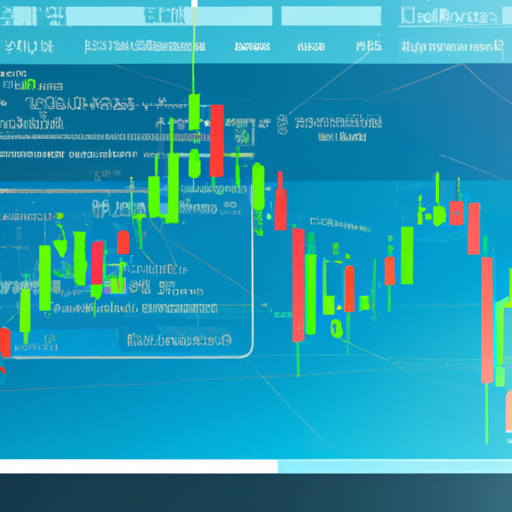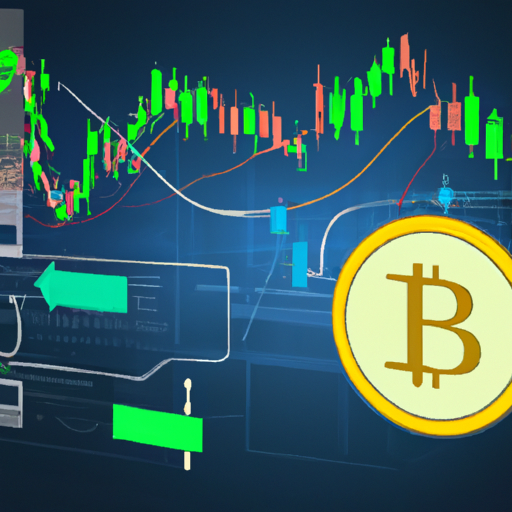
You’re about to embark on the exciting journey of financial trading, but the question of starting with a demo account versus using real money looms large. This article helps you explore the significance of demo accounts in honing your trading skills without any actual loss and ventures into the complexities and rewards of trading with real money. It creates a balanced perspective so you can make an informed decision that suits your style and readiness. Understanding these pros and cons are key in ensuring that you get off to a smooth start in your trading endeavors.
Understanding the Concept of a Demo Trading Account
Trading in the financial market is both exciting and complex. Learning the ropes and getting a good grasp of trading dynamics can take time and practice. One of the tools that can help you with this learning process is a demo trading account.
Definition of a demo trading account
A demo trading account is a type of account offered by trading platforms, which is loaded with virtual money. It simulates real trading conditions, allowing you to practice trading without risking real money. It’s like a trading simulator where you can explore the market, understand different trading instruments, and learn the nuances of trading in real-time conditions.
Benefits of using a demo account
There are several advantages of using a demo account. Primarily, it offers a risk-free environment to learn and understand the various aspects of trading, such as executing trades, analyzing market trends, and experimenting with different strategies. It also helps in familiarizing yourself with the trading platform, its features, and functionalities. Most importantly, you can practice money management strategies without incurring real losses.
Potential drawbacks of using a demo trading account
Despite all its benefits, there are a few potential drawbacks to using a demo account. Firstly, it does not completely replicate the psychological pressure that comes with trading real money. Emotional stress and fear of losses significantly impact trading decisions in real trading, which cannot be experienced in a demo account. Secondly, there’s a likelihood of developing overconfidence or bad trading habits, such as overtrading, due to the safety net of virtual money.
Importance of Risk Management in Trading
Risk management is an integral part of trading. It helps to protect your trading capital and increases your chances of being profitable in the long run.
Understanding risk vs reward
Risk vs reward is a basic concept in trading. It simply means understanding how much you are willing to risk for a certain level of returns. It is important to maintain a balanced risk-reward ratio to ensure that potential profits justify the risk you’re taking on each trade.
Implementing risk management tactics in your trading
Risk management methods include setting stop losses, limiting the amount invested per trade, diversifying your portfolio, and more. A well thought out risk management strategy helps minimize losses and protect your trading capital.
How demo accounts aid in learning about risk management
A demo account is a perfect platform to practice and develop risk management strategies. In a risk-free environment, you can experiment with different methods to understand which ones work best for you. Moreover, it gives you a chance to assess your risk tolerance level and learn how to handle losses.
Enhancing Technical Analysis Skills through a Demo Account
Technical analysis is an essential skill for every trader. It’s a method to evaluate investments and identify trading opportunities by analyzing statistical trends gathered from trading activities such as price movement and volume.
Basics of technical analysis
Technical analysis involves studying price charts and using various indicators and tools to predict future price movements. It is based on the idea that history tends to repeat itself and that price movements are predominantly a result of supply and demand.
Role of demo accounts in mastering technical analysis
Demo accounts provide an excellent platform for learning and practicing technical analysis. This allows you to experiment with different technical indicators, interpret complex chart patterns, and understand trade entry and exit points without any financial risk.
Improving decision making using demo accounts
By regularly practicing technical analysis on a demo account, you can hone your decision-making skills. Over time, this practice can enhance your ability to make informed and timely trading decisions, ultimately leading to more profitable trades.
Use of Demo Accounts for Strategy Building
A sound trading strategy is a decisive factor in consistently making profits from trading.
Importance of having a trading strategy
Having a trading strategy reduces impulsive decisions and helps maintain disciplined trading. It provides a systematic approach to trading, setting out clear instructions on when to enter or exit a trade, and how much to invest.
Experimenting with different trading strategies on a demo account
A demo account is a perfect platform for testing various trading strategies. From scalping, day trading, swing trading to long-term trading, you can try out different strategies and techniques to see what fits your trading style best.
How strategy efficiency can be tested with a demo account
Demo accounts enable you to evaluate the effectiveness of your trading strategy in real market conditions. By analyzing the performance of your trades, you can fine-tune your strategy for better outcomes. This process helps in building a robust trading strategy that can cope with different market scenarios.
Understanding Market Volatility Through a Demo Account
One of the unique characteristics of the financial market is its volatility. Understanding how to navigate market volatility is crucial for successful trading.
Concept of market volatility
Market volatility refers to the rate at which the price of a security or market index increases or decreases for a set of returns. Volatility is often measured by the standard deviation of annual returns. High volatility indicates that the price of the security can change dramatically over a short time period in either direction. Conversely, low volatility implies that a security’s value does not fluctuate significantly and remains relatively stable.
Managing trades during volatility
During periods of high volatility, prices can swing wildly, which can offer potential for higher returns but also carries greater risk. Having a proper risk management strategy in place and understanding technical analysis can be crucial for managing trades in such situations.
Demo account experiences with high volatility trading
A demo account can provide you with valuable insights about trading in volatile markets. It allows you to experience the behavior of the markets during periods of high volatility and practice techniques to manage your trades effectively.
Difference Between Demo Trading and Real Money Trading
While demo trading provides a platform for learning and practicing trading, real trading involves investing and potentially losing real money, making it a fundamentally different experience.
Key differences between demo and real trading
While the market conditions in demo trading closely mimic that of real trading, there are a few key differences. Most importantly, demo trading does not involve any psychological pressure of losing actual money. It also does not replicate the market liquidity conditions, order slippage or execution delays, which can happen in live trading.
Preparation for emotional and psychological aspects of real trading
One of the most challenging aspects of trading is dealing with the emotional stress that comes with the risk of losing real money. By starting with a demo account, you can prepare yourself for real trading by gaining confidence in your trading skills and strategy. However, it is important to keep in mind that live trading will involve emotions like fear and greed that you would not have experienced while demo trading.
Transition from demo trading to real money trading
Transitioning from demo trading to real money trading can be daunting. It is important to ensure that you are comfortable with your trading platform, have a solid trading strategy, and have practiced risk management. Start slowly, be patient, and don’t forget to continually assess your performance and adjust your strategy as necessary.
Choosing the Right Demo Account for Trading
Choosing the right demo account is crucial because it ensures that you get the most out of your practice trading experience.
Factors to consider when choosing a demo account
When choosing a demo account, consider factors such as the virtual money balance offered, whether prices and trading conditions accurately replicate live market conditions, and if the platform features align with what you plan to use in real trading.
Different types of demo accounts available
There are different types of demo accounts available, some tailored for forex trading, stock trading, or commodities trading, etc. Choose a demo account that aligns with your trading interests and market preferences.
Transitioning from a demo account to a live account with the same platform
If possible, try using a demo account from the same platform where you plan to open a live account. This will allow you to familiarize yourself with the platform’s features and ensure a smooth transition from demo to live trading.
Common Mistakes to Avoid While Using a Demo Account
While a demo account is a fantastic learning tool, there are certain pitfalls that traders should avoid to maximize their demo trading experience.
Overtrading in a demo account
Overtrading simply means executing an excessive number of trades. Because demo accounts do not involve real financial risk, there can be a temptation to trade recklessly. However, overtrading does not replicate the thoughtful, disciplined approach required for successful real trading and should therefore be avoided.
Ignoring a trading plan in demo trading
Just like with live trading, having a trading plan in demo trading is crucial. Ignoring your trading plan might give you short-term benefits, but it won’t promote good trading habits.
Overlooking the value of money management in a demo account
While trading with virtual money in a demo account, there is often an urge to take larger risks than what one would take in a live account. Remember, the goal while using a demo account is to simulate real trading scenarios as closely as possible, which includes following appropriate money management strategies.
Real Stories: Learning From Experts’ Experience with Demo Trading
Many successful traders started their journey with demo trading. Their experiences offer valuable lessons for novice traders.
Examples of successful traders who used demo accounts
Many successful traders, such as Paul Tudor Jones, have previously spoken about the importance of practice; many of them used demo accounts early in their trading careers.
Lessons learned from these expert traders’ demo trading experiences
The experiences of expert traders highlight the role of perseverance, continuous learning, and effective risk management. They emphasize the need to develop and test strategies in a demo account before implementing them in a live trading environment.
How these experiences can shape your own trading journey
These stories provide inspiration and also underline the importance of starting with a demo account. Learning from their stories allows us to avoid certain mistakes and make our own trading journey more effective and successful.
Final Thoughts: Is Demo Trading Worth It?
Whether you should use a demo account for trading or not depends on your unique circumstances and objectives.
Weighing the pros and cons of demo trading
Demo trading offers multiple benefits, including learning the market, practicing trading strategies, and understanding risk management, all without risking actual capital. On the other hand, it may foster overconfidence and does not entirely replicate the psychological pressure of real trading.
Considerations before moving from demo trading to real trading
Before making the transition to real trading, consider whether you have gained enough knowledge, developed a robust strategy, and practiced risk management techniques. All these considerations should form the basis of your decision to move from demo trading to real trading.
Understanding the limitations of demo trading
While a demo account offers a great platform for learning, it is not a perfect replica of live trading. Understanding these limitations and being prepared for the different dynamics of live trading is key to your success in the real market.
In a nutshell, a demo account serves as a practical, risk-free training ground that can greatly contribute to a trader’s journey towards profitability. However, it’s important to remember that the ultimate success in trading comes from a mix of theory, practice, patience, discipline, and a deep understanding of the financial markets.





